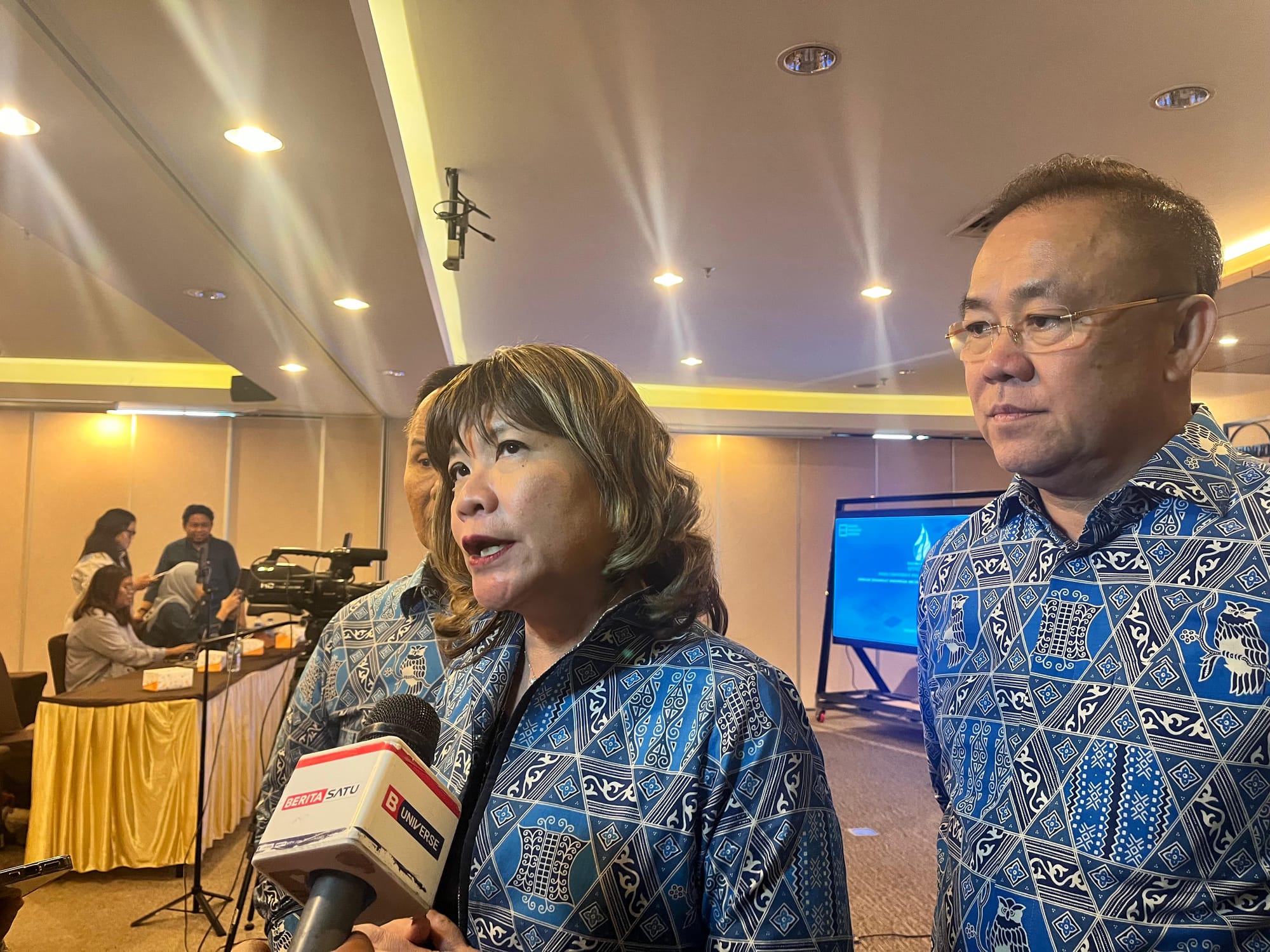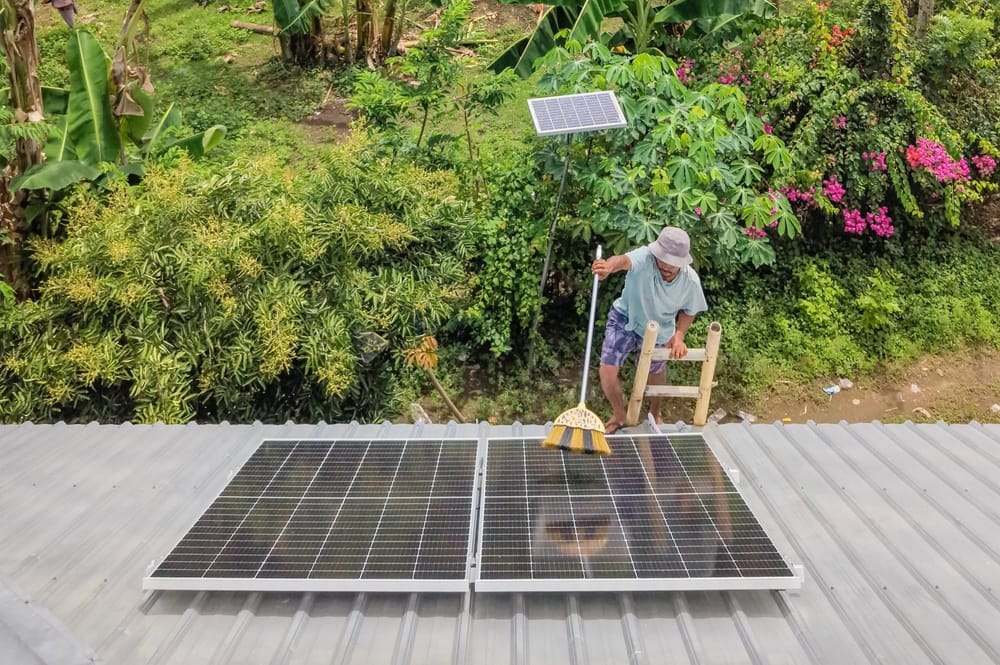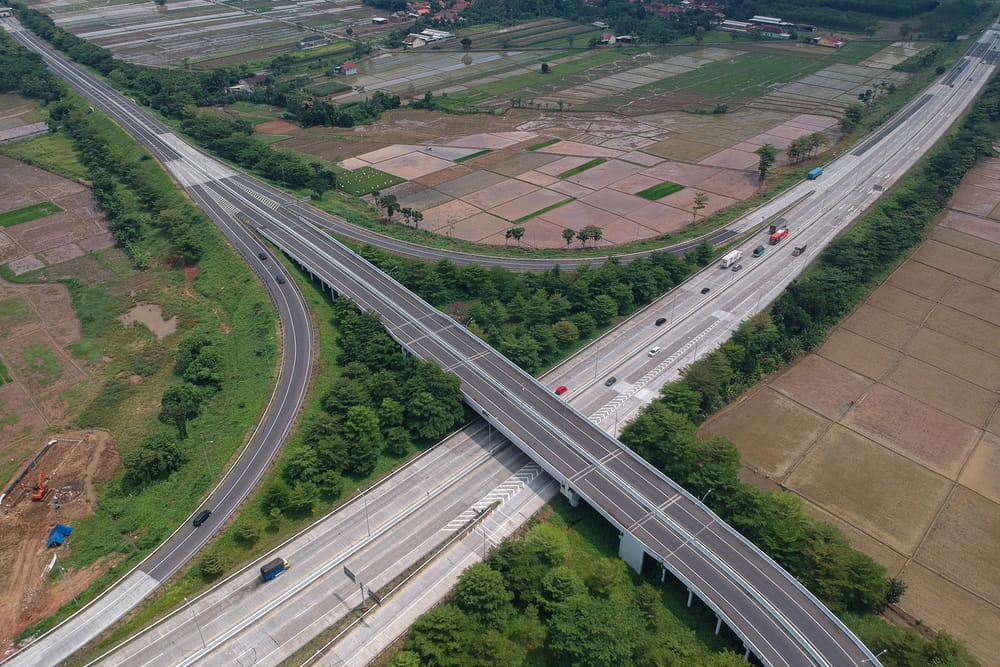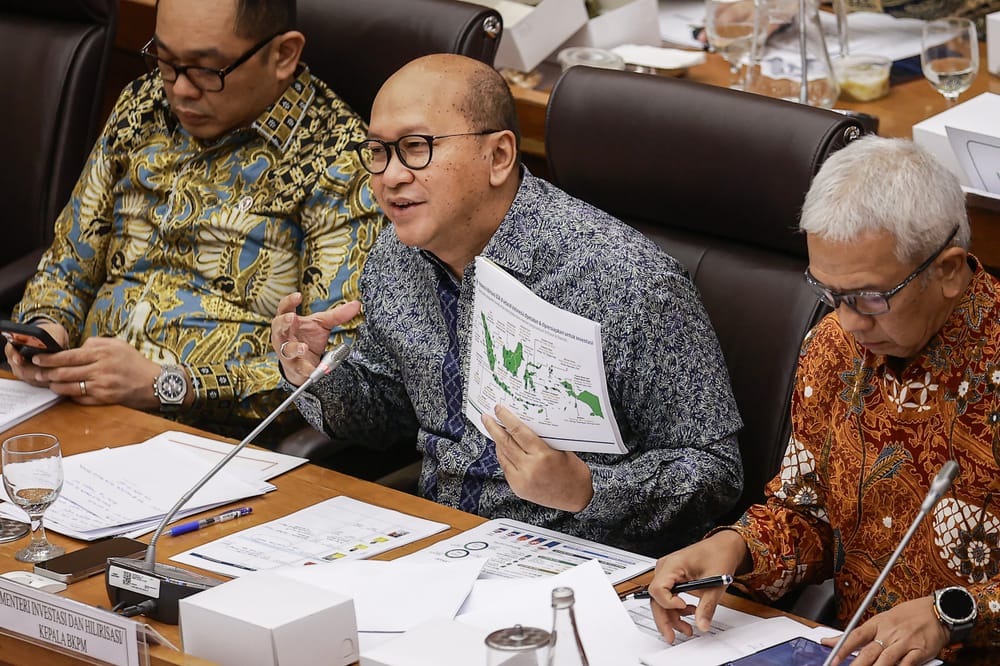Dozens of messages came in, both via WhatsApp and conveyed directly to Shinta Kamdani, Chairwoman of the Indonesian Employers' Association (Apindo). The content is repetitive, coming from all over Indonesia: complaints about legal certainty.
"We consistently receive complaints from business actors regarding the issue of legal uncertainty," Shinta told SUAR via written statement (07/31).
From building permits, AMDAL documents, to the lack of synchronization between central and regional regulations. Although the business sectors, business scales, and regions vary, the pattern of complaints remains the same: unpredictable licensing processes and policies, which not only slow down but also disrupt the business climate.
Last June, Apindo conducted a survey of more than 100 companies in 18 provinces. The results confirmed this anxiety: 72% of respondents felt there were too many required documents, 65% admitted to being forced to use third-party services, which complicated matters and increased costs, and 54% highlighted the length of the recommendation process, technical obstacles in the OSS system, and mismatches between central and regional regulations.
"For AMDAL documents alone, the majority of companies can spend more than a year. Even though this is just the initial stage," said Shinta. Complaints that used to arise sporadically have now become a systemic problem pattern.

More Than Just a Pile of Documents
For the business world, uncertainty is more than just a matter of documents. It means hidden costs: the cessation of expansion plans, relocation abroad, or an increase in product prices due to lengthy processes and additional costs.
"Business always grows on risk calculation. But if the rules themselves are inconsistent, it is very difficult to plan," said Shinta.
A number of reform efforts have actually been carried out by the government. The revision of PP 5/2021 into PP 28/2025 strengthens the OSS-RBA system, the application of a service level agreement (SLA) for service time limits, to the principle of tacit consent: if a permit application is not answered within a certain period of time, it is automatically considered valid. However, the spirit of reform at the center is often still hampered by the reality on the ground.
"Ministerial or regional regulations must also be adjusted. If only the main policy is good, but the derivative policies are not synchronized, the problem remains," said Shinta.
For this reason, Apindo encourages the government not only to focus on procedural reform, but also to evaluate the impact of new policies on the business world through regulatory impact assessment (RIA), and to reduce the pile of regulations that clash with each other, a phenomenon often referred to as regulatory overload.
View from Singapore: Consistency as a Selling Point
For Suryopratomo, the Indonesian Ambassador to Singapore, the success of this neighboring country is not a coincidence, but the result of a consistent and predictable regulatory culture. "The Singapore government rarely makes sudden policy changes," Suryopratomo told SUAR (07/30).
Every strategic policy revision is always preceded by a public consultation process, regulatory impact assessment, to multi-year planning. "That gives room for business actors, both local and foreign, to adapt and develop their business strategies," he added.
In addition to policy certainty, there is one important principle that is upheld: regulatory simplicity. The licensing process is mostly carried out digitally, using a single window system such as BizFile and GoBusiness.
"Even for foreign investors, establishing a company can be completed in just a matter of hours," said Suryopratomo.
All legal documents, regulations, and incentives are also available transparently, in English, so that they can be directly accessed by potential investors. "The basic principle is: don't make unnecessary regulations," he explained. Singapore prefers not to regulate unimportant things rather than create rules that ultimately make things difficult.
Outside of regulations, there are also supporting factors that are equally important. Political and legal stability, a bureaucracy with minimal multiple interpretations, to rule of law that is strictly enforced. Not to mention, a competitive tax system, skilled human resources, and ease of technology adoption and institutional reform.
“Singapore's business ecosystem is closely connected to global economic hubs. That also provides more appeal,” said Suryopratomo. This makes Singapore a regional benchmark in the ease of doing business—not because its regulations are always light, but because the processes are made transparent, consistent, and fair.
Suryopratomo admitted that Indonesia should not simply copy the Singapore model. “Each country has its own context and needs,” he said.
However, basic principles such as regulatory consistency, information transparency, and impact-based policy evaluation remain relevant. “Indonesia has made a lot of progress, such as the digitalization of OSS services, structural reforms, and regulatory reviews,” said Suryopratomo. “But this journey still requires consistency and cross-party involvement: central government, regional governments, and of course, business actors.”
The most important lesson, said Suryopratomo, is that legal certainty is not just about speed or the number of documents, but about clear process certainty, room for adaptation for business actors, and the government's courage to abolish unnecessary regulations.
“Because in the end, the trust of business actors grows not from promises, but from policy consistency in the field,” he concluded.
Mapping Problems, Offering Solutions
In the near future, the Apindo National Working Meeting (Rakerkonas) will be an important event to discuss this issue. The annual forum brings together business actors from UMKM scale to large companies, with the government and economists. The aim is not only to hear complaints, but also to map strategic solutions.
Bringing together business actors with experts and policymakers such as the Coordinating Minister for Economic Affairs, the Coordinating Minister for Infrastructure and Regional Development, the Minister of Manpower, the Minister of UMKM, and the Minister of Tourism and Creative Economy will be the main agenda. “Later, there will be Strategic Recommendations, points of input from the business world for the government for improving the investment ecosystem,” said Shinta.
Apindo hopes that the discussion on legal certainty will not only focus on licensing procedures, but also touch on the substance of policies, including consistency of implementation between the central and regional governments. “Legal certainty is not about one permit being issued quickly, but how all processes are transparent, clear, and predictable,” she added.
Indonesia has great market potential, productive demographics, and an ongoing digital transformation. But all of that requires a foundation: regulatory certainty. “Legal certainty is the foundation. Without it, no matter how great our potential is, there will always be unmeasured business risks,” Shinta concluded.
Minister of Investment and Downstream Affairs/Head of the Investment Coordinating Board (BKPM) Rosan P Roeslani understands the importance of legal and regulatory certainty to attract investment. Therefore, the government is taking three steps to ensure that foreign investment activity continues to run well in the country.
The first step taken by the government is to improve regulations to provide certainty for investors. In this case, the government is revising Government Regulation (PP) Number 5 of 2021 concerning the Implementation of Risk-Based Business Licensing.
The second step is to improve the quality of human resources (SDM). With adequate human resources, Indonesia can have a higher attraction for investment. This is because investors always question the readiness of human resources when starting an investment in a country.
Third, increase interaction between the government and investors. Rosan said that President Prabowo Subianto always holds meetings with foreign investors on the sidelines of visits abroad. The government is also optimizing the performance of Danantara Indonesia to increase the attractiveness of foreign investors to Indonesia.






